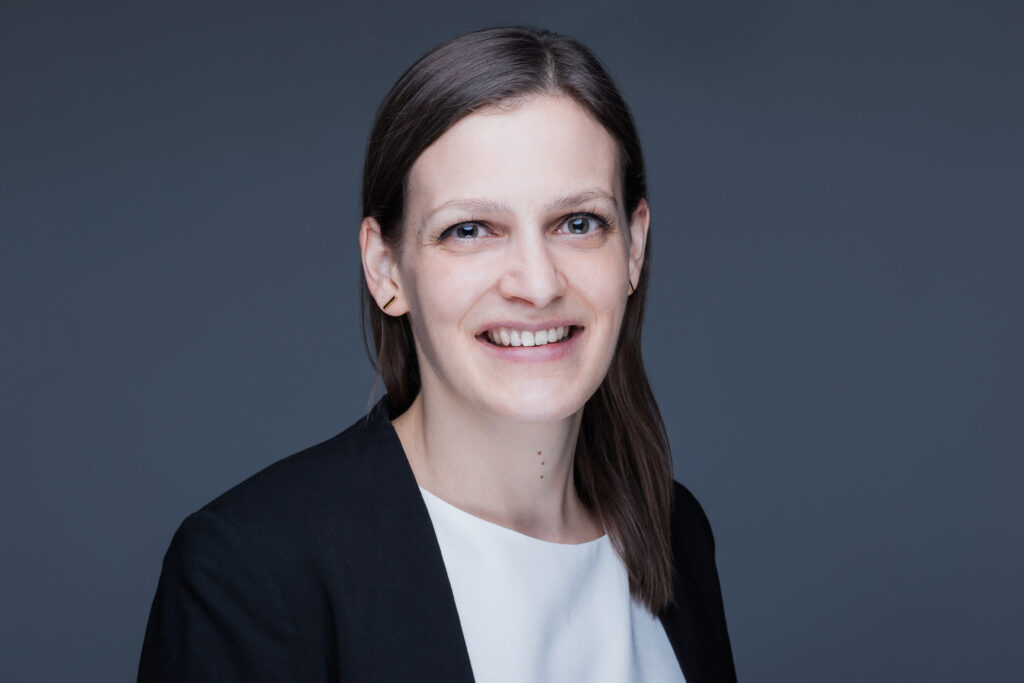In her master’s thesis, Anna Rennhofer dealt with the role of controlling in companies with an integrated ecological sustainability strategy. The work was supervised by FH-Prof. Dr. Daniela Ortiz, project lead of the City of Vienna competence team “Change for Corporate Sustainability” (funded by MA23). In this interview, Anna Rennhofer gives an insight into the process of research and writing as well as the findings of the master’s thesis.
IBES Alumni Story #3 Anna Rennhofer, BA MA
Master: Financial Management & Controlling
Graduation 2021
Anna Rennhofer completed the Master’s programme in Financial Management & Controlling at FHWien of WKW. Her master’s thesis is entitled “The role of controlling in companies with an integrated environmental sustainability strategy”.
Anna, what is your master’s thesis about?
My thesis is about the role of controlling in companies with an integrated environmental sustainability strategy. I focused on which forms of sustainability controlling exist, what exactly is behind this term and in which corporate sector it is located. Furthermore, I wanted to show the effects of sustainable controlling, such as financial savings potential and the conservation of environmental resources.
What was your motivation for this topic?
Sustainability is my personal interest. I am convinced that everyone can contribute. And the same applies to companies. I think it is essential that controlling is not only monetary but also about natural resources and human capital. Paying attention only to money does not lead to success in the long run. A sustainability strategy alone is also not enough. I think that the relevance of ecologically sustainable controlling is underestimated.
What were the findings of your master’s thesis?
One finding was that sustainability strategies should be broken down into individual goals. In addition, all employees should be involved in change processes and informed about the meaning and purpose of measures. In this way, the corporate culture can also change. The role of controlling in connection with corporate sustainability is to make progress visible and to drive change. Why is this important? A strategy can only be successful if progress can also be measured. For example, it is incredibly motivating when you see resource savings in black and white.
Did anything in the interviews surprise you in terms of content?
The literature says that sustainability controlling should take place within the framework of classical controlling. In practice, however, it often turns out that normal controlling has nothing to do with sustainability controlling. I was surprised that the meaningfulness of two parallel target systems is not questioned. This is probably because many controllers only have an economic background and think only the finances have to fit. However, this means that sustainability is outsourced. In my survey, 2 out of 8 persons said they already view economic and ecological controlling together in the same context. However, I believe that this is still the exception.
How did you research or select companies for the interviews?
With the help of FH-Prof. Dr Daniela Ortiz, I created a catalogue of criteria to ensure the selected companies actually do have an ecological sustainability strategy. For various reasons, I deliberately considered only the ecological sustainability dimension here. I finally picked companies based on the environmental management system EMAS (Eco-Management and Audit Scheme). In addition, these companies had to have an environmental certificate and, in the best case, also report according to the Global Reporting Standard (GRI). I limited the search to Austria and Germany. Filtering out the relevant companies and then getting them to agree to an interview was a great challenge and by far the most time-consuming part of the work. In total, I talked to 17 companies, resulting in 8 interviews.
How did you prepare for the interviews?
For the first contact, I created a template email. I then adapted this to the respective company. I always looked for a specific contact person and researched the company’s certificates. If I couldn’t find any information, I called the company and asked for the missing information.
What challenges did you encounter? How did you overcome them? And how did you experience the mentoring process?
I am a morning person. However, due to my full-time job, I had no choice but to get up early and write the thesis from 6 to 9 am before my work. It was an intense and challenging time. How did I cope? I planned blocks of time and set small goals. Another big challenge was finding a topic and narrowing down my subject. In the degree programme, we have a subject called scientific work methods – that’s a “first approach”. That’s also where I came into contact with FH Prof. Dr.in Daniela Ortiz. Though she is critical and demands a high level, she is always supportive. She never left me alone when I was unsure or had a problem. Many people want to get their Master’s thesis over with quickly. For me, however, it is the part of the degree that has stayed with me the most. My Master’s thesis even made me change my job and work in the sustainability sector.
What advice would you give to theorists, practitioners and students?
For students, I would say: find a good supervisor. And choose a topic that interests you.
To the practitioners: Talking brings people together! Networking is important for exchanging tips and tricks.
If you are also interested in writing your master’s thesis at IBES, please contact Dr. Daniela Ortiz. You can find the necessary information here.
